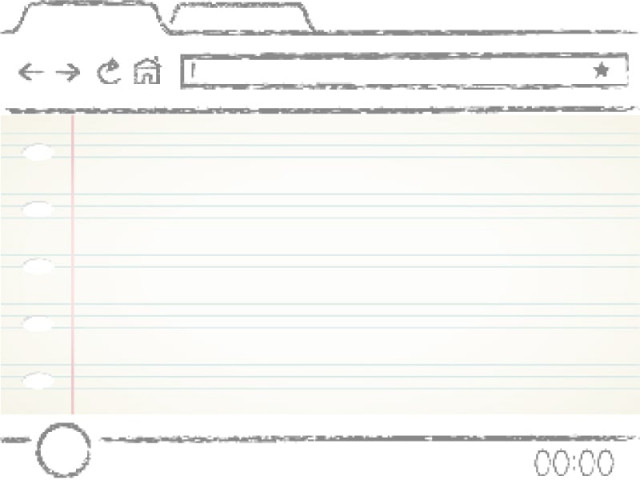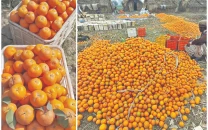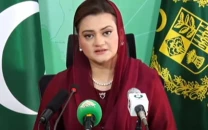Online learning: ‘E.Learn Punjab will make learning more interactive’
Website covers a range of topics from class IX and X science.textbooks

Teachers welcomed the initiative but were also sceptical of
long-term benefits; Website
covers a range of topics from
class IX and X science textbooks.
The eLearn.Punjab, launched on January 6, offers free online learning and interactive resources to students. Teachers and students spoke to The Express Tribune about their experience of the initiative.
The programme’s team discussed how they were improving the resource. The project, a collaboration between the School Education Department (SED) and the Punjab Information Technology Board (PITB), took six months to execute.
From visualising different phases of mitosis and meiosis to decoding organic chemical reactions, the website covers a range of topics from class IX and X biology, chemistry and physics textbooks from the Punjab Textbook Board.
Apart from the e-format of the textbooks, more than 1,700 videos, 360 simulations, 470 animations, and assessments are available on the website.

The developers said they were trying to make learning more “interactive and self reliant” for 2.5 million 9th and 10th grade students in the Punjab.
PITB Chairman Dr Umar Saif said the initiative could help solve the problem of limited resources in the face of growing demands in the education sector. “The need of the hour is to innovate. This website makes optimal use of our educational resources while providing solutions to expand our reach”, he said. He said the initiative aimed to offer high quality self assessing educational content to learners. He the website allows visitors to contribute to the online resource, which would help improve it.
“There was a pent up demand for the use of technology in education. It is encouraging that that demand is being acknowledged and catered to” said Dr Saif. He said he hoped the initiative would make students self reliant, and could impact students reliance’ on tuition centres, guides and other learning assistive tools.
The PTIB plans to introduce CDs and memory cards for smart phones with the educational content. Dr Saif hopes to carry out the exercise for classes 5 to 12. He said he hoped the online resource would also improve learning outcome across the province.
The 10-member team running the project operates out of a conference room on the Arfa Software Technology Park’s 10th floor. Majority of the team members have been associated with the PITB through the Youth Internship Programme. “The idea is not to replace traditional resource or teachers, because that is impossible and maybe even detrimental for active learning…the aim is to provide learners and educators with easy access to maximum resources” said Kashif Farooq, team leader and senior programme manager at the PITB.
Three weeks after the project’s launch in Lahore, the team is focusing on training educators and teachers across the province. The team said they would train teachers from Daanish Schools on Saturday, February 1 to utilize the online learning resource.

Farooq said the team also planned a preferential training schedule for 4,000 government schools that already have IT labs.
“We realise these resources will be more readily utilised in private schools but we aim to bridge that gap by training government teachers”, said Farooq. The team has constituted an 8-minute training video, which will air on Virtual University’s television channel. He said that the team was analysing the success of such initiatives internationally.
The interactive content on the website has been selected by the team, which surfs the internet to find content most appropriate for achieving the desired learning outcome for each class. Instead of taking content directly from the textbook, the team uses free educational content for interactive learning resource available under the Creative Common Licence, a pubic copyright licence that allows free distribution of copyrighted work. “We also hope to inspire our teachers to create some of their own content” said Farooq.
The team is now working on developing animations for classes VI to VIII. Farooq said they hoped to offer interactive learning resources for science and mathematics by April, before the start of the new academic year. He said the content readily available for other subjects was limited. “We plan to take up English for grades IX and X but will need to develop the content on our own”, he said.
The team is also working on providing Urdu dubbed audio lessons for physics, biology, chemistry and mathematics on the website.
The users of the initiative had mixed perceptions of the online repository. “I think the online tool will prove to be very useful for both students and teachers” says Mohammad Shabaan, a physics and mathematic teacher for classes IX and X at the Government Muslim Model High School, Urdu Bazaar.
Shabaan said the initiative would help decrease the students’ dependency on teachers. He said it also provided teachers with an additional resource equipped with innovative teaching tools, such as animations and simulations. He said this would help improve the students’ learning outcomes, especially in physics and mathematics.
Some teachers welcomed the initiative but were sceptical of its long term benefits.
“The issue is of continuity and accessibility” said Khalid Umer, a teacher at the Central Model School Lower Mall with an operational IT lab. He commended the intention but said there had not been enough effort in training and disseminating information about the programme.
“When you launch a programme that addresses something as expansive and as basic as education, you should ensure its wide accessibility”, he said. He added that a large number of students were not aware of the initiative.
Mohammad Aslam, a 9th grade student said he had not heard about the initiative. “I didn’t know such a thing existed’ ‘but it would be very helpful if it offered students something other than just the textbooks’ content” Aslam said.
Published in The Express Tribune, February 7th, 2014.



















COMMENTS
Comments are moderated and generally will be posted if they are on-topic and not abusive.
For more information, please see our Comments FAQ